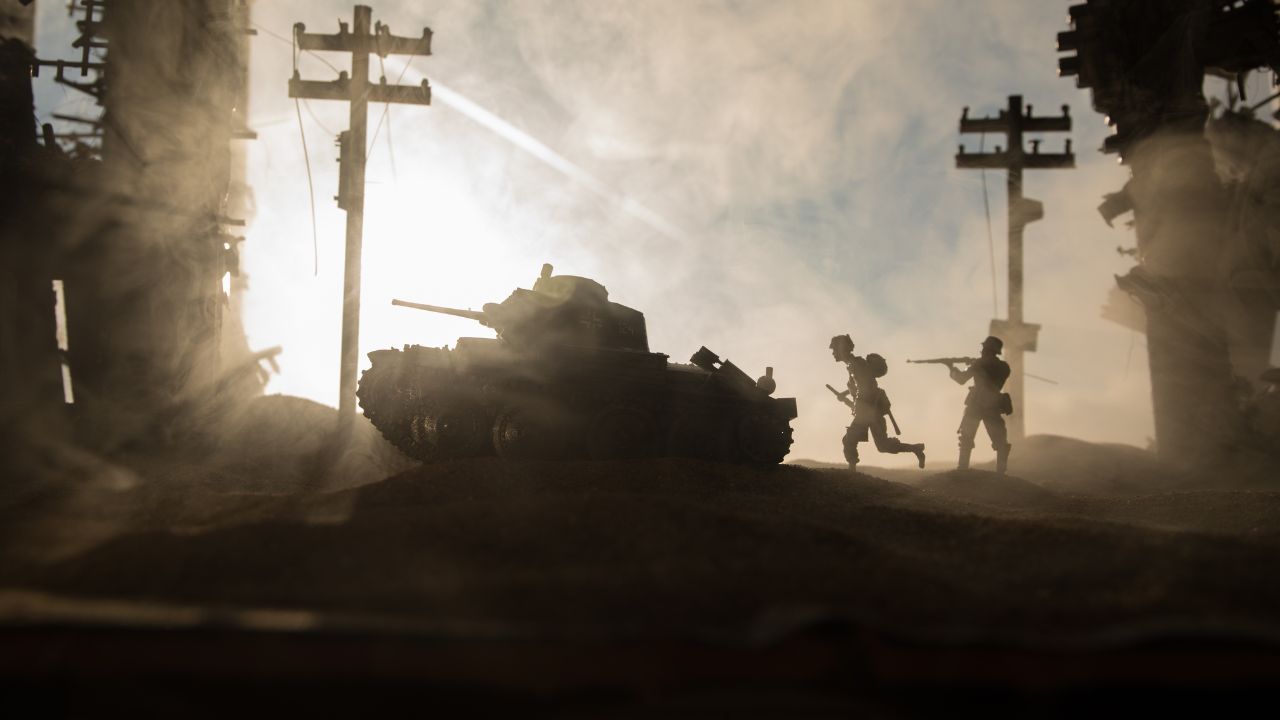
Post by : Zayd Kamal
The history of the world wars events and impact is a powerful narrative of human struggle, resilience, and transformation. The two World Wars shaped the course of the 20th century, leaving an indelible mark on the political, social, and economic landscapes of nations around the globe. Understanding the events that led to these wars and their profound impact is crucial to comprehending modern history and international relations.
The First World War, also known as World War I, began in 1914 and lasted until 1918. The origins of this devastating conflict were complex, fueled by a combination of nationalism, imperialism, militarism, and a tangled web of alliances. One of the most significant events that triggered the war was the assassination of Archduke Franz Ferdinand of Austria-Hungary in Sarajevo. This event set off a chain reaction of military alliances being activated, leading to a full-scale war.
Europe was divided into two main alliances: the Allies, including the United Kingdom, France, and Russia, and the Central Powers, consisting of Germany, Austria-Hungary, and the Ottoman Empire. The war involved a new type of combat, with trench warfare dominating the Western Front. Technological advances, such as machine guns, tanks, and poison gas, made the war particularly deadly.
The impact of World War I was devastating. The war claimed millions of lives, both military and civilian, and left much of Europe in ruins. The Treaty of Versailles, signed in 1919, formally ended the war but imposed harsh penalties on Germany, which fueled resentment and set the stage for World War II.
The interwar period between World War I and World War II was marked by political instability, economic hardship, and the rise of totalitarian regimes. The global economic depression of the 1930s exacerbated political tensions, and nations like Germany, Italy, and Japan became increasingly militaristic and expansionist.
In 1939, World War II broke out when Nazi Germany, under the leadership of Adolf Hitler, invaded Poland. This invasion prompted Britain and France to declare war on Germany. Unlike World War I, World War II saw more rapid and widespread combat, with major battles fought in Europe, Africa, Asia, and the Pacific.
The war witnessed the horrors of the Holocaust, where millions of Jews, along with other minorities, were systematically exterminated by the Nazi regime. Additionally, the conflict led to the use of atomic bombs by the United States on the Japanese cities of Hiroshima and Nagasaki in 1945, marking the first and only use of nuclear weapons in warfare.
The Allies, including the United States, the Soviet Union, and the United Kingdom, eventually defeated the Axis Powers, leading to the unconditional surrender of Germany in May 1945 and Japan in September 1945. The war resulted in a death toll of over 70 million people, including soldiers and civilians.
The aftermath of both World Wars fundamentally changed the geopolitical landscape of the world. The collapse of empires, such as the Ottoman, Russian, and Austro-Hungarian Empires, led to the creation of new nation-states and reshaped borders in Europe and the Middle East.
Following World War II, the United States and the Soviet Union emerged as the two superpowers, leading to the beginning of the Cold War. This ideological conflict between capitalism, led by the U.S., and communism, led by the Soviet Union, dominated global politics for much of the second half of the 20th century.
The United Nations (UN) was established in 1945 in an effort to prevent future conflicts and promote international cooperation. Its creation was a direct response to the failure of the League of Nations, which had been formed after World War I but failed to prevent World War II.

The history of the world wars events and impact also had profound effects on the social and economic structures of societies around the globe. World War I saw the first widespread use of women in the workforce, as men went off to fight. This shift began the process of women gaining more rights and recognition in many countries.
World War II further accelerated these changes, as women continued to take on roles in factories and other industries. After the war, many women continued to work outside the home, contributing to the gradual transformation of gender roles.
Economically, the two world wars led to massive government spending and the mobilization of entire populations for war efforts. After World War II, many nations, especially in Europe, experienced significant rebuilding efforts. The United States, in particular, saw a period of economic prosperity, while Europe benefited from the Marshall Plan, which provided financial aid to rebuild war-torn nations.
The history of the world wars events and impact continues to shape the world today. The wars brought about significant advancements in technology, including the development of jet aircraft, radar, and computers, all of which have had lasting effects on modern society.
In addition, the wars highlighted the need for global cooperation and diplomacy. Organizations like the United Nations and NATO, along with various treaties and international agreements, were formed to help prevent future global conflicts.
The human cost of the world wars serves as a constant reminder of the devastating effects of war. The lessons learned from these conflicts continue to influence global politics, military strategies, and international relations.
The article "Events & Impact of the Global Conflicts" explores the major events that led to two of the most devastating global conflicts and their lasting effects on politics, society, and the economy. The first major conflict began with the assassination of Archduke Franz Ferdinand, leading to widespread destruction, the fall of empires, and the reshaping of nations. The second conflict, sparked by aggression from Nazi Germany, resulted in large-scale destruction, the Holocaust, and the use of atomic bombs. These events changed global borders, created superpowers, and led to the formation of international organizations like the United Nations. Social and economic transformations, including shifts in gender roles and post-conflict recovery, are also discussed. The impact of these events continues to influence international relations and global politics today.
Disclaimer: The information presented in this article is for educational purposes only. The views and opinions expressed are those of the author and do not necessarily reflect the official policy or position of the dxb news network.
#trending #latest #WorldWars #GlobalConflicts #History #ImpactOfWar #PoliticalChange #EconomicImpact #SocialChange #InternationalRelations #HistoryOfWars #WarImpact #GlobalHistory #PoliticalShifts #WorldHistory #ModernWorld #breakingnews #worldnews #headlines #topstories #globalUpdate #dxbnewsnetwork #dxbnews #dxbdnn #dxbnewsnetworkdnn #bestnewschanneldubai #bestnewschannelUAE #bestnewschannelabudhabi #bestnewschannelajman #bestnewschannelofdubai #popularnewschanneldubai










Sheikh Mansour Arrives in Kuwait to Boost UAE-Kuwait Relations
Sheikh Mansour arrives in Kuwait for an official visit to meet the Emir, aiming to strengthen UAE-Ku

Story :The Merchant of Manchester - by Dr Amrinder Pal Singh
Story of loss, Kindness, Betrayal… and Legacy

Rashid Al Obad Appointed Director General of Shams
Sheikh Sultan issues Emiri Decree appointing Rashid Al Obad as Director General of Sharjah Media Cit

Dubai’s Government Best Practices Series 2025 Highlights Innovation
The Government Best Practices Series 2025 in Dubai focused on government innovation, digital service

Dubai Hosts GenAI Masterclass for Future Family Leaders
Dubai Centre for Family Businesses held a GenAI masterclass to train 24 young leaders in using AI fo

ArtDomain by DXB News Network Opens to Strong Global Response — Applications Begin for A50 and The Art Guild.
ArtDomain by DXB News Network Opens to Strong Global Response — Applications Begin for A50 and The A

Dembele's Goal Gives PSG a 1-0 Win Over Arsenal in Semi-final
Ousmane Dembele scores early to give PSG a 1-0 win over Arsenal in their Champions League semi-final